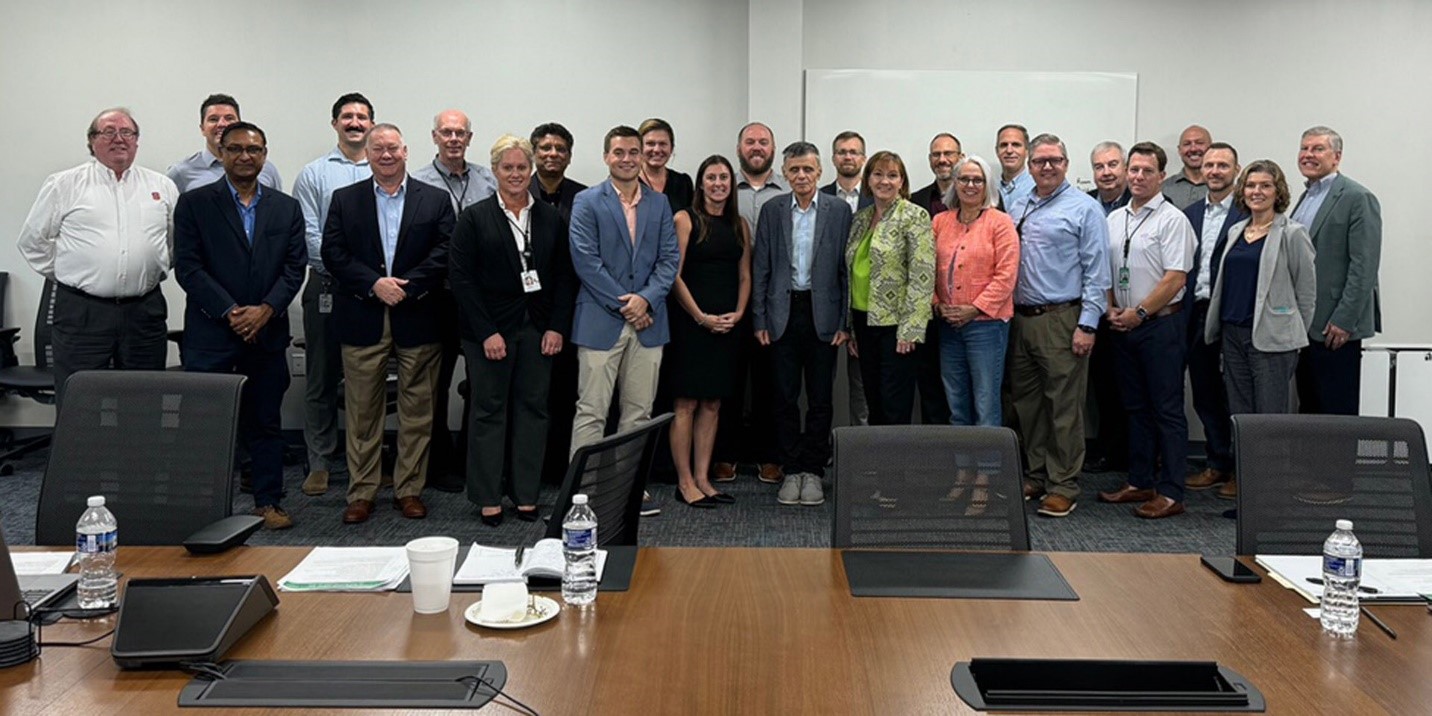from Nuclear Newswire, October 1, 2024
NC State University members include Dr. Jacob Eapen (Nuclear Engineering), Dr. Kostadin Ivanov (Nuclear Engineering), Prof. Lisa Marshall (Nuclear Engineering, absent) and Abhinav Gupta (Civil, Construction & Environmental Engineering). Tanya Hamilton (Nuclear Engineering Advisory Council), and Steve Rea (NC State alumnae).
A mix of nuclear professionals and advocates gathered las week to discuss public policy, workforce needs, and regulatory matters at a meeting of the North Carolina Nuclear Energy Industry Advisory Council.
John Krohn, deputy chief of staff for the U.S. Department of Energy’s Office of Nuclear Energy, gave a keynote presentation and fielded questions about federal support for more nuclear generation.
“We continue our efforts to support priorities, including bolstering the nuclear fuel supply chain, moving forward the deployment of advanced reactors, helping to keep existing plants open, and—even more exciting—restarting some plants that have prematurely retired,” Krohn said, referring to the efforts to bring Palisades nuclear power plant in Michigan and Three Mile Island-1 in Pennsylvania back online.
One of the bottlenecks in the process to deploy small modular reactors is the number of different designs under consideration. Krohn shared an anecdote that “even though we love all our children the same,” the industry would benefit from choosing a uniform approach to move SMRs and other advanced technology forward.
Workforce development: The group also discussed ways to inform more people about the professional opportunities available in nuclear generation. Blaine Blackwell, nuclear business development director for Day & Zimmermann, said that workforce needs changed during the global pandemic years, since many nuclear professionals retired early.
Now, companies like Day & Zimmermann are increasing outreach to young adults and students—as early as middle school—to promote the broad array of careers available in nuclear.
“Students can’t be what they can’t see,” Blackwell said, emphasizing the work being done to visit schools and bring young people to power plants to educate them about nuclear energy and the industry. “And one of the big things [we share] . . . is the greater purpose of what all this is for—securing the nation’s clean energy infrastructure, bettering advanced technologies, and really developing skills that are going to be needed as technology advances,” he continued.

